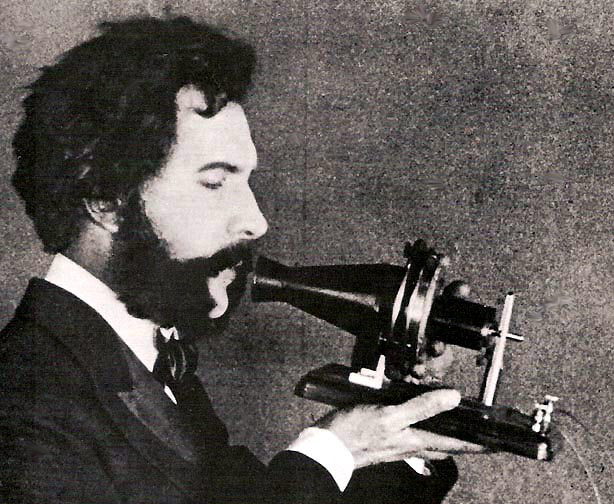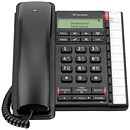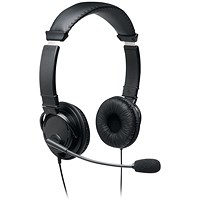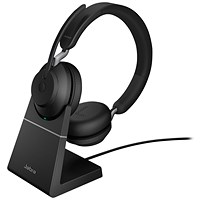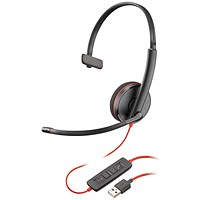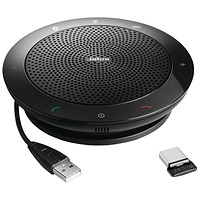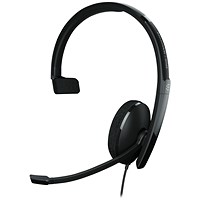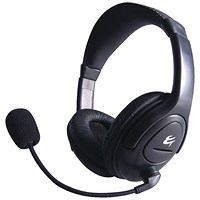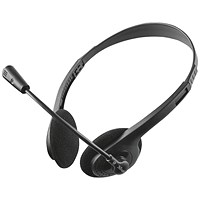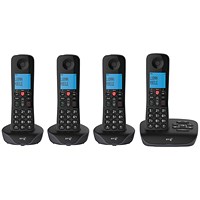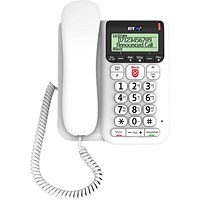Telephones and telephone accessories for the office
It is difficult to imagine office life without the telephone. Telephone hardware is a feature of just about every office in the world, from the remotest of towns as yet relatively unsullied by global capitalism to the most technologically up-to-date corporations who take as much advantage of internet telephony as they can. Notwithstanding a resurgence of textual communication, it seems we find it difficult to conduct business without speaking to one another.
While we at Paperstone don't pretend to be experts on office telephony, we do supply a decent range of telephones and telephone accessories to ensure we cover all bases when it comes to providing a total office supply service. We stock telephones and answering machines (from BT, Audiolin, Doro, Konftel and Polycom), intercom equipment (radios), as well as accessories – headsets, cables and sockets. And remember that we promise to beat any price that you find elsewhere for the same product (as long as you show us the evidence!).
Telephones and telephone accessories at Paperstone
- Corded and cordless telephones, including phones with SIM card readers, text messaging, hearing aid compatibility, switchboard compatibility, transfer recall, handsfree, intercom between two handsets.
- Telephone headsets – from Plantronics, BT and Doro
- Headset switches
- Tele-recording kits
- Conference phones
- USB phones
- Answerphones
- Two-way radios
- Telephone arms
- Extension cables and sockets
- Phone ring amplifiers
A very annotated impression of telephonic history
While in everyday modern life the telephone is as common as disappointment, in historical terms the phone hasn't been with us very long. Telephony evolved out of electrical telegraphy, involving a series of technological developments in a number of quarters. As such it is difficult, if not fruitless, to identify THE inventor of the telephone. Credit for its invention remains in dispute and it is probably more instructive to see telephony as a technological system that emerged from no single origin. Nevertheless, the patents of Thomas Edison and Alexander Graham Bell were commercially decisive and it was they who stamped their mark more than others on the development of the telephone.
The first long-distance telephone line was built in 1877. The first users of telephone had to arrange for telephone lines to be set up between his or her phone(s) and other phones with which they would communicate. Then manual exchanges emerged whereby an operator at an exchange with lots of nobs and buttons would physically connect you to another phone. It wasn't until the 1920s that the first direct dial calls could be made (for some calls at least). Gradually, direct dialling extended to long-distance and international calls, obviating the need for an operator. Jumping ahead to the 1990s, mobile or cellular phones started to take off in a big way as networks were put in place to facilitate mobile telephone calls, although the technology had been well established and Japan and Scandinavia had seen automatic cellular networks in the 1980s. The twenty-first century has seen the emergence of internet telephony as a common form of communication.
